Good luck and Godspeed, Ricky Arnold
Bill Dennison ·Today, at 17:44:26 GMT, Soyuz MS-08 lifted off from the Biakonar Cosmosdrome in Kazakhstan. Ricky Arnold, another American astronaut, and one cosmonaut are now aboard en route to the International Space Station for a six month stint. Ricky was a Marine Estuarine and Environmental Science (MEES) graduate student and has been the plenary speaker at two MEES student colloquia, inspiring the current students to literally reach for the stars.
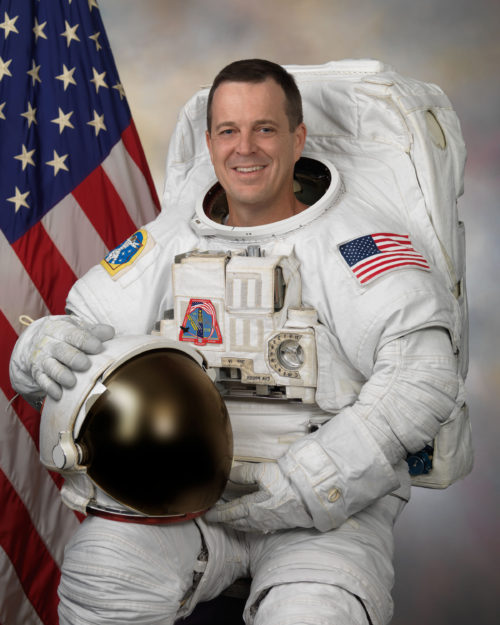
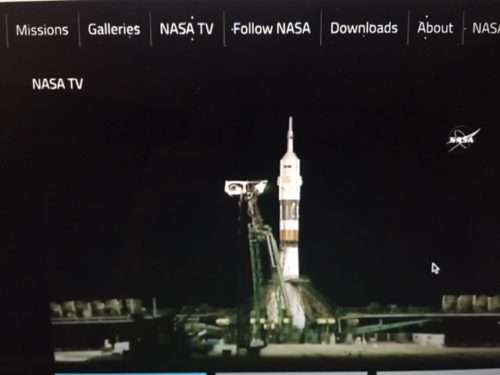
I had the chance to conduct a short interview with Ricky as he prepared for this mission. During that interview, I asked Ricky for a photo of Chesapeake Bay from the International Space Station to share with the graduate students. I also asked him to provide advice to the current MEES students and he delivered some great thoughts. You can listen to his advice here.
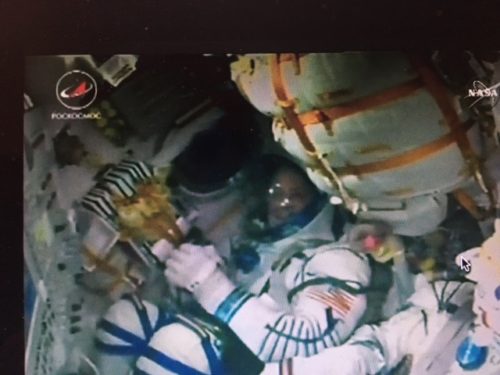
When I met Ricky back in 1988, he was a high school science teacher. He completed his Masters research and thesis writing while teaching, and upon completing his MEES thesis, he taught overseas in locations such as Morocco, Saudi Arabia and Indonesia. Ricky was originally hired by NASA to serve as an educator astronaut, but also became an EVA expert, meaning Extravehicular Activity (space walks). On this trip to the ISS, Ricky will be doing another EVA, conducting science experiments and connecting with students.
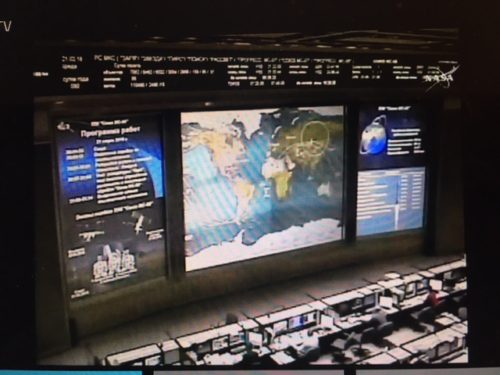
When Ricky was launched into space aboard the Discovery space shuttle for Mission STS-119, I traveled with my family to Cape Canaveral to watch it. After several delays we were treated to a wonderful sight as Discovery left the launching pad at 7:43 pm on 15 Mar 2009. We felt the launch as much as we watched it, because the vibration rattled our bodies as the rocket engines ignited and lit up the evening sky. I will never forget the sight of Discovery rising into the sunlight heading out over the Atlantic Ocean as we all cheered the successful launch.
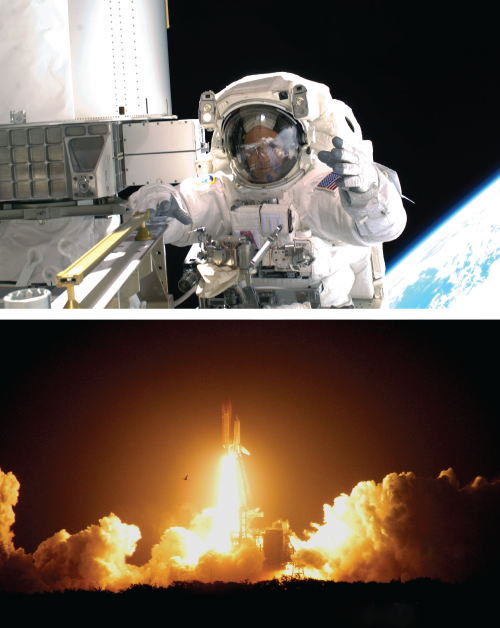
We were staying in the same hotel that the astronauts’ families had stayed since the days of John Glenn. The hotel television had NASATV station, which was our preferred channel. We could listen to the radio conversations between the Johnson Space Center in Houston and the Discovery as well as video footage from the Discovery and International Space Station. Watching NASATV in Cape Canaveral got me hooked. The NASA website live-streamed the NASATV channel and when we returned to Maryland, I was glued to this website.
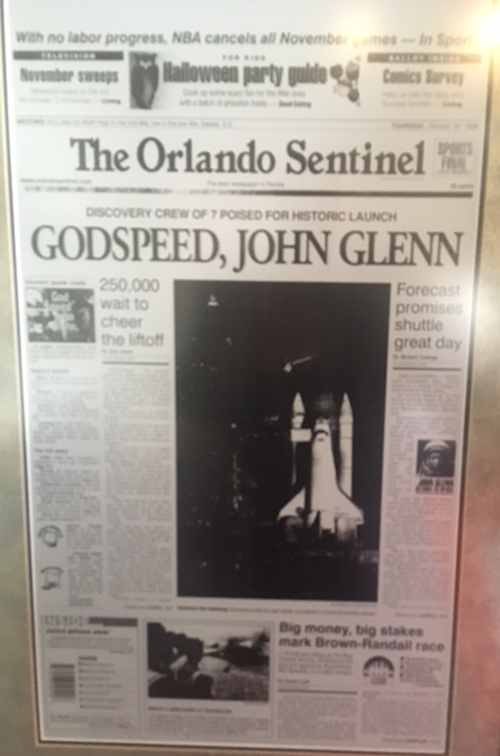
My productivity at work suffered throughout Rick’s two week mission. For example, when Ricky went on his space walks, I would close my office door so that I could watch the amazing footage. At one point, I recall Ricky struggling to free a bolt that was stuck as he was helping deploy two new solar panels. He said “Houston, this bolt is not budging, do you want me to pull harder?” I had this vivid, but unrealistic, image of a bunch of engineers in white shirts and black ties checking their slide rules as NASA pondered the question. After a minute or so, they came back on and Ricky was given another task. They did eventually free the bolt and successfully deploy the solar panels. Listening to the NASATV was an all day habit. At 6 am, the astronauts were awakened by music that each of their families picked out for them. I would start my day with them as well, and then follow along all day until they signed off in the evening.
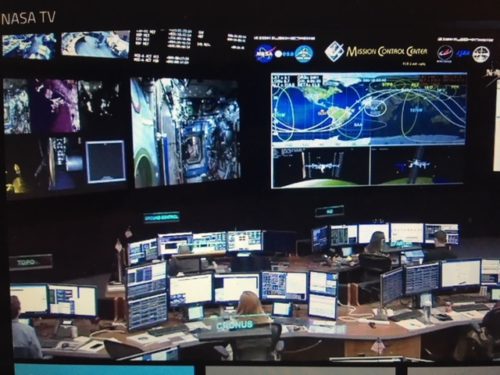
Discovery returned to Cape Canaveral on 28 March 2009 after 202 orbits of the earth. It was supposed to orbit fewer times, but the weather in Cape Canaveral was spotty, so they waited for the right weather window. When the Discovery landed and the parachute popped out, I felt a giant wave of relief wash over me. I realized that I had been holding my breath for two weeks. Ricky and the crew deplaned from the Discovery and did the customary walk around the shuttle and seeing Ricky back on the ground deepened my relief. So, I am worried about Ricky on Expedition 55/56, scheduled for 6 months. How will I be able to hold my breath for six months?
About the author
Bill Dennison

Dr. Bill Dennison is a Professor of Marine Science and Vice President for Science Application at the University of Maryland Center for Environmental Science.

